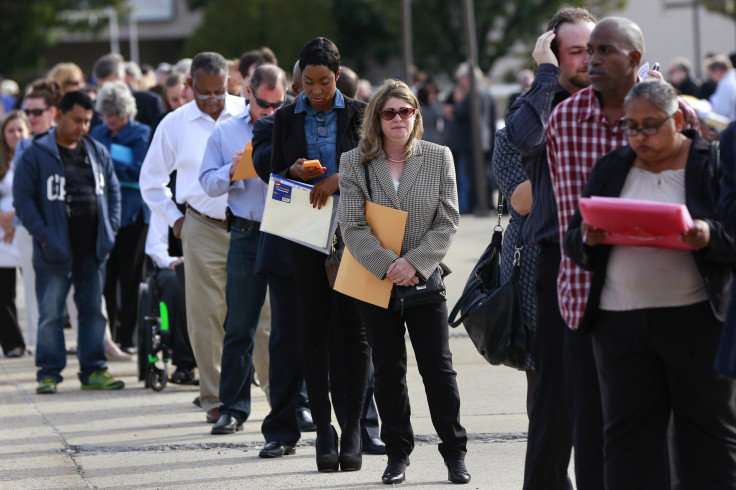May Jobs Report: US Employers Added Disappointing 38,000 Positions Last Month As Unemployment Rate Fell To 4.7%

Hiring fell sharply in May, hitting the lowest monthly level in nearly six years and throwing into doubt a possible hike in interest rates by the U.S. Federal Reserve at its meeting this month.
Nonfarm payrolls increased by just 38,000 jobs in May, the Labor Department said Friday, far fewer than the 164,000 expected by economists and the fewest since September 2010. The nation’s unemployment rate slid to 4.7 percent — the lowest since November 2007 — from 5 percent in the prior month. The decrease was in part due to people dropping out of the labor force.
Employers hired 59,000 fewer workers in March and April. The government said the monthlong Verizon strike had depressed employment growth by 34,000 jobs.
Economists and Fed Chair Janet Yellen said monthly gains of roughly 100,000 jobs are needed to keep up with growth in the work-age population.
The jobs report is an important data point in the lead-up to the Fed's June meeting. The U.S. central bank has signaled its intention to raise rates soon if job gains continue and economic data remain consistent, with a pickup in growth in the second quarter.
Yellen said last week a rate increase would probably be appropriate in the "coming months" if those conditions were met. Data on consumer spending, industrial production, goods exports and housing have suggested the economy is gathering speed after growth slowed to a 0.8 percent annualized rate in the first quarter.
Ahead of Friday’s jobs report, financial markets had seen a small chance of a rate increase at the Fed's June 14-15 policy meeting but are pricing in a roughly 59 percent probability at the July gathering, according to CME Group's FedWatch program. The Fed hiked its benchmark overnight interest rate in December for the first time in nearly a decade.
A government report last week suggested a monthlong strike by Verizon workers could slice 35,100 jobs from payrolls in May. The striking workers, who returned to their jobs Wednesday, were regarded as unemployed because they did not receive a salary during the payrolls survey week. They are expected to boost June employment.
The goods-producing sector, which includes mining and manufacturing, shed 36,000 jobs in May, the most since February 2010. Even without the Verizon strike, payrolls would have increased by a mere 72,000.
Data from Reuters were used to report this story.
© Copyright IBTimes 2025. All rights reserved.





















